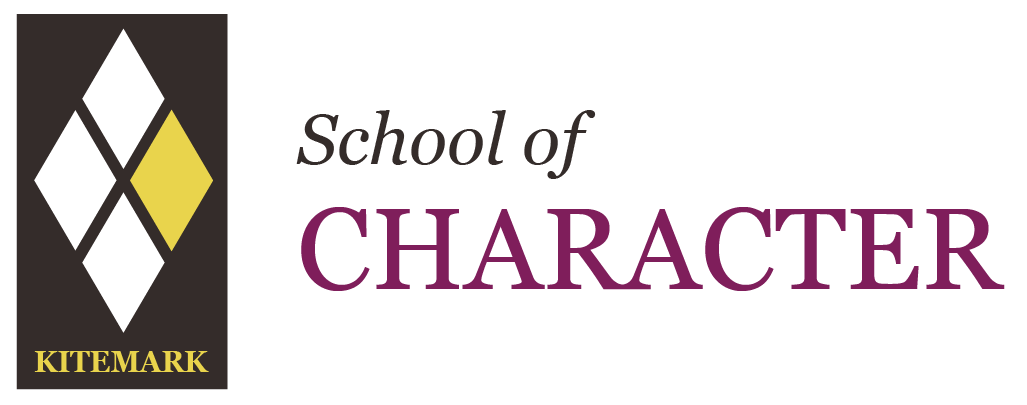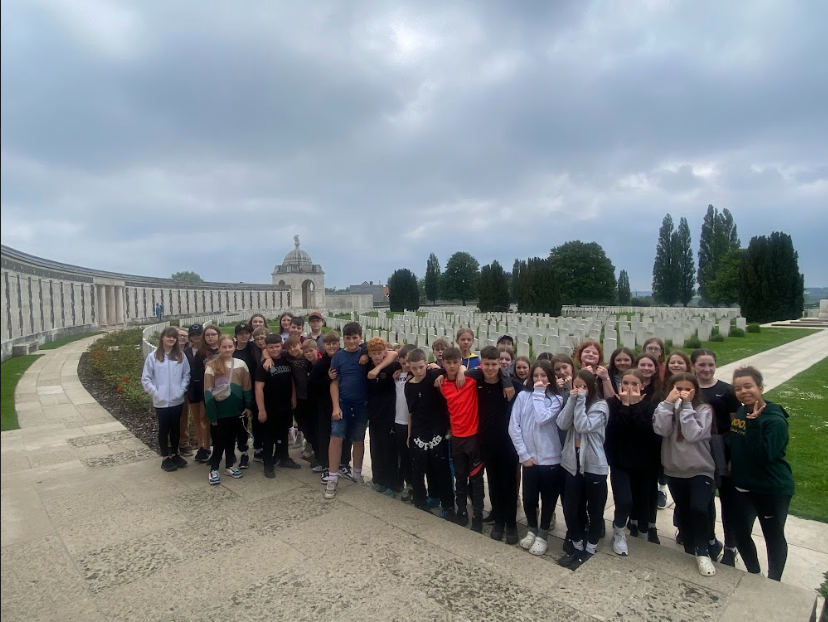Modern Foreign Languages
Purpose of Study
A high-quality languages education should foster pupils’ curiosity and deepen their understanding of the world and other cultures. The teaching should enable pupils to express their ideas and thoughts in another language and to understand and respond to its speakers, both in speech and in writing. It should also provide opportunities for them to communicate for practical purposes, learn new ways of thinking and read and listen to authentic materials in the target language.
Language teaching should provide the foundation for learning further languages, equipping pupils with the skills needed to study and work in other countries, as well as opening their minds to life beyond our own shores. We are particularly committed to developing pupils’ knowledge of the wider francophone world outside of mainland France.
|
Careers The working lives of our pupils will look very different to our own. With a projected huge growth in first-language French speakers by 2050, our young people will be at the height of their careers in a world where knowledge of a language will be more important than ever in the world of work. Through displays in school and starter tasks in lessons, pupils will reflect on where language-learning may lead. |
Reading/Literacy Across the Curriculum Reading and numeracy form a part of French lessons at Aston Fields Middle School. Whether it be exposure to authentic texts and stories, or through learning how to tell the analogue time in French, these key skills are a regular feature of our lessons. |
|
Character Education Through our high expectations, pupils have endless opportunities to develop their character virtues. In particular, grit and resilience are key. “Giving-it-a-go” and being okay with making mistakes are encouraged. |
Cultural Capital Pupils have the opportunity in school to broaden their horizons in a number of ways. In lessons, they are encouraged to think of the wider world outside of a Eurocentric perspective. We mark European Day of Languages through activities during lessons and form time. Our long-standing Year 7 France trip is a hugely successful opportunity for cultural enrichment, fostering a love for the different and creating memories for life. |
Annual Educational Visit to France
|
|
|
|
|
|
French Curriculum – KS2
Intent – What is Aston Fields Middle School aiming to achieve though its curriculum?
- To develop a love of language-learning.
- To begin to develop linguistic competence to ensure practical communication on a range of familiar and routine matters.
- To develop the four skills of listening, speaking, reading and writing.
- To broaden vocabulary in French and develop ability to understand new words in context.
- To begin to develop basic grammatical understanding which will permeate all skill areas.
- To offer pupils their first experience of differing phonics in French.
- To develop an appreciation of other cultures, preparing them to be global citizens.
- To develop self-confidence and resilience.
Implementation – How is the Aston Fields Middle School curriculum delivered?
- Pupils have full access to the French National Curriculum at Key Stage 2.
- The French curriculum is designed to be challenging, appropriate to each pupil’s stage of development and lay the foundations for language-learning at KS3 and beyond.
- The French curriculum is designed to build and expand on previous skills and subject knowledge taught at First School and over the 2-year period here at KS2. It also plans for opportunities for repetition to embed knowledge, increasing the chance of information recall (remembering more) and to integrate new knowledge into other modules.
- The curriculum will progress from word through to statement/sentence level, using a range of language in the present tense.
- Pupils will have regular opportunities to build their confidence and resilience in listening to and reading appropriate authentic materials, including songs, poems and rhymes.
- Pupils will have regular opportunities to speak with increasing confidence, fluency and spontaneity and develop accurate pronunciation and intonation.
- Pupils will have regular opportunities to write phrases from memory and adapt these to create new sentences, to express ideas clearly.
- Pupils will have regular opportunities to learn new vocabulary and develop their ability to understand new words, including though using a dictionary.
- Pupils will have regular opportunities to practise differing French phonics through choral repetition.
- High levels of accuracy will be promoted across all skill areas.
- The French curriculum offers opportunities for cross-curricular learning, to ensure pupils makes significant personal development, including communication development through role-plays and spoken language activities such as presentation and language games, and the use of ICT in our Rigolo videos to reinforce learning and to create their own work.
- The French curriculum is taught weekly. Assessment supports the teaching of the curriculum, and it helps pupils to embed knowledge as well as assisting teachers in producing clear next steps for pupils.
- French teachers use a range of formative assessment procedures to assess progress and attainment, including marking, self/peer assessment, targeted questioning and summative Progress Checks.
Impact – What difference is the Aston Fields Middle School curriculum making to pupils?
- Pupils show confidence and enjoyment in French lessons
- Pupils move to KS3 well-prepared for the next stage of language-learning.
- Pupils broaden their vocabulary and will understand basic grammar, including feminine and masculine forms and patterns of language and are able to apply these when building a simple sentence.
- Pupils develop their speaking and listening skills to enable effective communication.
- Pupils can show an understanding of words, phrases and simple writing.
- Pupils write phrases from memory and adapt these to write their own sentences.
- Pupils begin to demonstrate the ability to accurately pronounce French phonics.
- Pupils begin to work successfully in a team and independently and will improve their self-confidence.
- Pupils improve their presentation skills.
- Most pupils will meet or exceed their expected progress in French.
Topics covered in KS2
Year 5:
Module 1: Ma famille - I can effectively describe someone else.
Module 2: Mon école - I can talk about my school day and which subjects I like.
Module 3: On mange - I can talk about the food I eat.
Module 4: En ville - I can describe where I am going in town.
Module 5: Les vacances - I can say what I am going to do.
Module 6: Ma maison - I can describe what my family does at home.
Year 6:
Module 1: Mes passe-temps - I can describe my hobbies.
Module 2: Les vêtements - I can talk about a clothes shopping trip.
Module 3: Ma routine - I can describe my daily routine.
Module 4: Les transports - I can talk about a day out.
Module 5: Le sport - I can describe my active lifestyle.
Module 6: Key Stage 2 Recap - I can demonstrate a strong grasp of Key Stage 2 content.
If you wish to support your child’s learning at home, BBC Bitesize has a number of engaging resources to help them consolidate their learning from the classroom: KS2 French - BBC Bitesize
Bienvenue à KS3!
Purpose of Study
French Curriculum – KS3
Intent – What is Aston Fields Middle School aiming to achieve though its curriculum?
- To develop a love of language-learning.
- To develop linguistic competence to communicate on a broad range of topical themes.
- To develop the four skills of listening, speaking, reading and writing.
- To acquire a good basic level of vocabulary in French.
- To develop grammatical understanding which will permeate all skill areas.
- To use French phonics accurately in context.
- To develop an appreciation of other cultures, preparing them to be global citizens.
- To develop self-confidence and resilience.
Implementation – How is the Aston Fields Middle School curriculum delivered?
- Pupils have full access to the French National Curriculum at Key Stage 3.
- The French curriculum is designed to be challenging, appropriate to each pupil’s stage of development and lay the foundations for language-learning at GCSE and beyond.
- The French curriculum is designed to build and expand on previous skills and subject knowledge taught over the 4-year period at Middle School. It also plans for opportunities for repetition to embed knowledge, increasing the chance of information recall (remembering more) and to integrate new knowledge into newer topics.
- The curriculum will progress from word and statement level through to communicating independently, using a broad range of extended language and will progress from the present tense, through to the near future tense and the perfect (past) tense.
- Pupils will have regular opportunities to build their confidence and resilience in listening to and reading appropriate authentic materials.
- Pupils will have regular opportunities to speak with increasing confidence, fluency and spontaneity.
- Pupils will have regular opportunities to write at varying length, for different purposes and audiences.
- Pupils will have regular opportunities to learn new vocabulary and develop their ability to understand new words, including though using a dictionary.
- Pupils will have regular opportunities to practise differing French phonics through choral repetition and practice in context.
- High levels of accuracy will be promoted across all skill areas.
- The French curriculum offers opportunities for cross-curricular learning, to ensure pupils makes significant personal development, including an educational visit to France, communication development through role-plays and spoken language activities such as presentation and language games, and the use of ICT to reinforce learning and to create their own work.
- The French curriculum is taught twice weekly.
- Assessment supports the teaching of the curriculum, and it helps pupils to embed knowledge as well as assisting teachers in producing clear next steps for pupils. French teachers use a range of formative assessment procedures to assess progress and attainment, including marking, self/peer assessment, targeted questioning and summative Progress Checks.Homework is provided through four ELAs across KS3, which are purposeful and give pupils access to some elements of wider francophone culture. Pupils also have the opportunity to reinforce their knowledge of vocabulary via the Quizlet app.
Impact – What difference is the Aston Fields Middle School curriculum making to pupils?
- Pupils develop a confidence communicating in French and demonstrate enjoyment of the subject.
- Pupils move to High School well-prepared to use basic French in real-life contexts and in the context of GCSE language-learning.
- Pupils develop a wide range and deepening knowledge of vocabulary and can use and manipulate key grammatical structures.
- Pupils develop their speaking and listening skills in order to effectively interact with others.
- Pupils develop their reading skills and understand the purpose, gist and details from a range of authentic sources.
- Pupils develop their writing skills to write at varying length, for different purposes and audience.
- Pupils can work successfully in a team and independently and improve their self-confidence.
- Pupils improve their presentation skills.
- Most pupils will meet or exceed their expected progress in French.
- Pupils develop their character. They demonstrate grit and determination as well as developing a sense of neighbourliness which will enable them to become global citizens.
Topics covered in KS3:
Year 7:
Module 1: Mes frères et sœurs - I can describe myself, my siblings and my likes/dislikes.
Module 2: Mon collège – I can describe my school life.
Module 3: Les activités – I can describe how I stay active and healthy.
Module 4: Là où j’habite – I can describe my family and where I live.
Module 5: Le weekend – I can describe my future plans.
Module 6: Year 7 Consolidation.
Year 8:
Module 1: Le passé – I can describe things that happened in the past.
Module 2: Les fêtes! – I can describe celebrations.
Module 3: Les médias et la technologie – I can describe what I do in my free time.
Module 4: Chez moi – I can describe where I live and different places.
Module 5: La mode de vie – I can describe what I do to stay healthy.
Module 6: Year 8 Consolidation.
You can support your child’s learning at home by encouraging them to create an account on Quizlet and revisit content covered in lessons.
Year 7: https://quizlet.com/join/JxnsQKRFk?i=4q40o4&x=1bqt
Year 8: https://quizlet.com/join/BhxPeaVNU?i=4q40o4&x=1bqt
Les Loisirs
Identify sports, people’s free time preferences and the frequency they are practised.
Understand short texts about free time activities.
Write compound and complex sentences about free time preferences, opinions and when these are practised.
Write a summary of written texts about leisure activities.
Take part in dialogues to find out and give personal details, including free time preferences etc.
Understand weather phrases, identify and note people’s weather preferences and what they do in certain weather conditions.
Understand a short written weather report.
Give a weather report and interview about what people do in certain weather conditions.
Write a weather report, using compound sentences.
Key Language:
J’adore…. J’aime…… Je n’aime pas…..Je déteste… Ça va..
L’athlétisme, le basket-ball, le badminton, le cyclisme, l’équitation,la natation, le ping-pong, le roller, le VTT etc.
Je joue au tennis/hockey/badminton etc.
Je fais de l’équitation/ de la natation/ de la gymnastique/ de la danse etc.
Je ne joue pas au………../Je ne fais pas de……….
Une fois par semaine/ deux fois/ trois fois/ tous les jours/ quelquefois/ souvent
Est-ce que tu aimes + infinitive ? / Qu’est-ce que tu aimes + infinitive ?
J’aime……, je n’aime pas……, je préfère………,
aller en ville, aller au cinéma / au McDo, aller a la pêche, faire des courses, écouter la musique, jouer a l’ordinateur, faire du sport/ du bricolage/ du vélo/ lire des livres/ les BD, regarder la tele
Conjugation of regular « er » verbs.
Je dors, j’écoute, je mange, je regarde, je rentre, je sors
Use of negative phrases: je ne joue pas etc.
Je ne fais rien
Vas-tu… ? je vais, tu vas, il va etc.
Le club des jeunes
Quand ? où ?
après, sur, avec, et, ou
le matin, l’après-midi, le soir, la nuit le lundi, le mardi etc.
Quel temps fait-il ?
Il fait chaud, il fait froid, il y a du brouillard, il y a du soleil, il y a du vent, il y a des orages, il pleut, il neige
Dans les Alpes, dans le centre/ le nord/ le sud/ l’est/ l’ouest
à + town (à Paris, à Bromsgrove), en + country ( en France, en Anglterre)
Je reste à la maison
Quand il pleut…..
S’il pleut ….
Justification of opinions : parce que/car c’est : nul, super, pénible, cool, pas mal, extra






